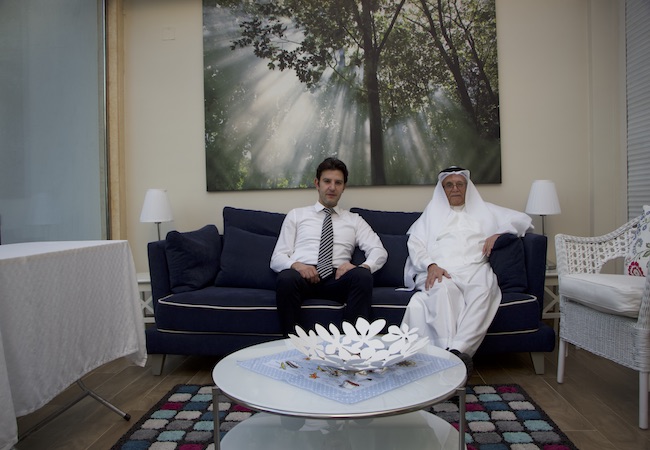Dr. Zohair Sebai and Alexander Woodman are discussing the history and current development of Saudi population health status

By Alexander Woodman
Jeddah, Saudi Arabia
Saudi Arabia is a cost-effective country with a per capita GDP of 22 713. 4. Oil revenues makes up 80%-90% of fiscal earning. Spending on health care services increased by 26% since 2010. During the 1950s there were only couple of hospitals in Saudi Arabia that had10 Saudi physicians which did not even represent 10 % of the total number of physicians in the country. After five decades there was a rapid growth in public health and currently there are 462 hospitals and 21,000 Saudi doctors making ratio raising from less than 10% to more than 25% of overall. Saudi Arabia is experiencing demographic and epidemiological transition, represented by a growing burden of chronic non-communicable diseases, while population expectation of quality care services are expending. Since 2004 the number of primary health care centers was increased by 8.9%. The number of hospitals, physicians and nursing staff also increased. In addition, quantitative and qualitative development of health care services has led to improvement of the areas of reproductive health, maternal and child health which reduced mortality rates, immunization and a decrease in vaccine-preventable diseases as well as eradication of poliomyelitis at national level. During the past decade, vaccination of mothers against neonatal tetanus increased from 88% to 97% and maternal mortality per 100,000 live births declined from 48 to 14.
This is a discussion on history and current development of Saudi population health status with public health pioneer Dr. Zohair Ahmed Sebai.
AW: Since your first book (Health in Saudi Arabia Vol.1 published in 1985). What changes have occurred?
ZS: We have more hospitals, hospital beds, primary health care centers and colleges of medicine. The budget of health soared to unprecedented level. However, the orientation of health services remained curative as it was before. There are many efforts to apply preventive and promotive medicine activities, and we are looking for more.
AW: It is recommended to stop eating when 80% full. Do you think Saudis are following this recommendation or there is a lack of health education?
ZS: Obesity and its related health problems become a global epidemic. Saudi people are following the global pattern. A proper health education can help to a great extend in solving the problem. Health knowledge should be translated into healthy life styles. This is the most difficult part of health education.
AW: As a leader, the Prophet Muhammad was an exemplary figure. I learned that he stopped eating when he was 80% full. Incidentally, this is also the ancient tradition of the Okinawans (a Blue Zone area in Japan). In what others ways did the Prophet Muhammad promote Public Health?
ZS: From Quranic prospective Allah Says: “Eat and Drink but not to excess. Prophet Mohammad (peace be upon him) advised his companions to eat moderately but if one must add more to his stomach, then let it be one third for food, one third for water, and one third for air.”
AW: What is the role of Islam in promoting public health in Saudi Arabia?
ZS: Islam calls for many acts which all lead to a healthy life style. Islam calls for moderation in life. It prohibits alcohol, drugs adultery and gambling. It emphasizes cleanliness “cleanliness is part of faith”. Islam calls for love, understanding and acceptance of others. Prophet Mohammad says “nobody (both genders) is considered as a believer unless he loves for his brother what he loves for himself. It is stated in Quran Surat Al Hujurat versus 13 “O mankind, indeed We have created you from male and female and made you peoples and tribes that you may know one another. Indeed, the most noble of you in the sight of Allah is the most righteous of you. Indeed, Allah is Knowing and Acquainted.
AW: Finally, what kind of public health changes should we expect in Saudi Arabia next 10 years?
ZS. Saudi Arabia is adopting a 2030 health strategy. The main tool to implement this ambitious strategy is to prepare the right health care personnel, who would carry the holistic approach to health. The process has already started and we are looking for a dramatic changes in the health services system.




